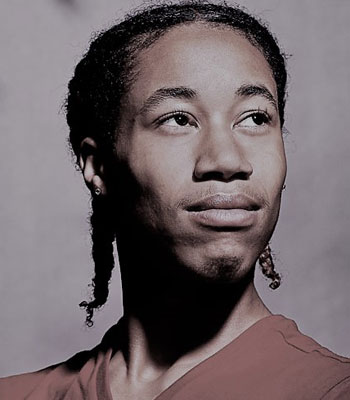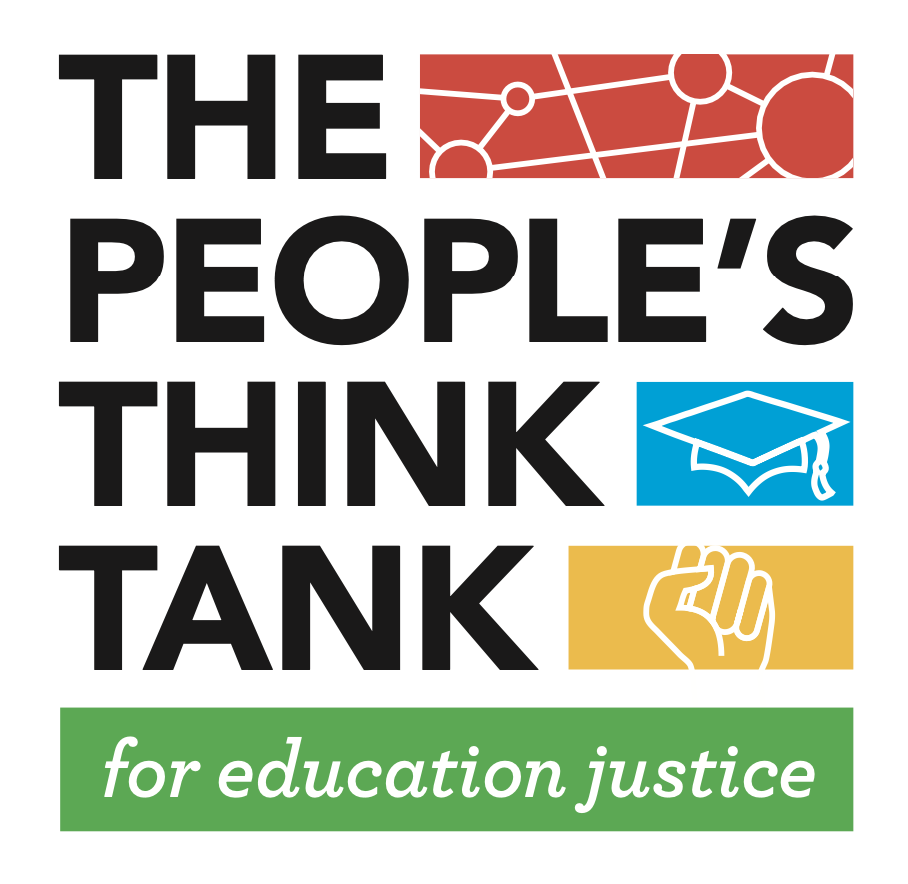< back to The Newest Abolitionists

By Jermaine “Jayy Jayy” Wright
Chicago Freedom School
With the assistance of Allie Boyd
University of Massachusetts Boston
Jayy Jayy is currently a student of marketing at the University of Illinois at Chicago, an organizer with the Chicago Freedom School, a talented singer and dancer, and a street medic during protests. He utilizes his skills and passion in the movement, using song and dance to uplift others at protests and employs his medical knowledge to help the injured when situations escalate. Through his organizing Jayy Jayy has built relationships, found community, and gained a sense of leadership and advocacy. He is passionate and optimistic describing the movement as being filled with Black joy which will aid in the fight to liberation and racial healing. Jayy Jayy and his peers challenged the Board of Education this summer in a vote to remove all school resource officers (SROs) from Chicago’s schools. The vote was close – 3 who voted yes for SRO removal and 4 who voted no – making this a historic moment for Chicago youth organizers. Such a tight margin has fueled the energy and enthusiasm of Chicago youth leaders to continue to fight for police-free schools and racial justice.
I always say that Black is my identity. I feel proud to be who I am as a Black person and who I have come to believe in.
I feel like I identify as Black everything. The majority of my identity exists within Black and being Black. Otherwise, identities don’t really matter to me. I could exist with it or without it.
It took me a long time to even believe that I was Black because I’m light-skinned, so I felt like my identity was pulled from that a lot of times. Other identities don’t really matter to me but accepting Black as my identity is important to me.
The community I’m from is a beautiful place with a lot of community building within itself. I love to be where I’m from. My high school was not the best place to be. It wasn’t a great experience for folks with different backgrounds. I felt like I couldn’t fully be myself in high school because there was so much militarization. So much anti Blackness. And having police officers in schools was forcing me not to be myself.
An Abolitionist Mindset
I’ve never had a positive interaction with the police in or out of schools. Having police officers in schools just encourages the capitalistic mindset and militarizing young folks. A lot of times having officers in schools was to make students feel like, “Oh if you do this, you’re going to go through this officer and then there’s going to be this consequence after.” And they are always there as a reminder. We are so constricted as people and school can be so de-humanizing for people who exist as Black and Brown. Police officers engage with us completely differently than other folks. As a Black person I’ve never had a positive interaction with police officers in school and I think other Black and Brown people have had similar experiences.
I got involved with organizing through family and family friends. My aunt had been organizing with the Black Lives Matter Chicago movement and was friends with Jackson, the wellness coordinator at the Chicago Freedom School. We all met at a dance class and we were talking about it and Jackson told me, “You need to be in the movement. You could be learning about this.” The next day or the next weekend I went to the Freedom School with my aunt and from there I started organizing.
I’ve built a lot of friendships through organizing. I got this press-on patch with an image of a Black Panther and reads “All Power to the People” from my supervisor Tony at the Chicago Freedom School. It represents our forever lasting relationship. I’ve built community with this person through our movement work. He has taught me so much and helped me develop to be the person that I am today. I think about this all the time and I carry Tony with me all the time. He’s a person that means a lot to me.
The police-free schools movement has an abolitionist mindset. Our goal is to get police officers out of our schools. We don’t want police officers in our schools. Sometimes counselors even create harm in schools. We want to make sure that officers and counselors are going through the right training to even exist in schools. Our main goal is to get police officers out of schools and, if we can’t do that yet, then they need to be trained on how to deal with students. A lot of officers are coming from the suburbs and have no experience or familiarity with the young folks they’re working with.
Black and Brown Joy Making History
A highlight in organizing for me was over this past summer. I felt like we brought a different kind of energy to the movement. A lot of the movement has been built out of Black sorrow and Black trauma, but I feel like we brought Black joy to the movement. We had protests where we were just dancing. We had protests when we were just playing music and eating food. And there wasn’t always shouting or altercations with police officers. That was my highlight. Being able to have so much Black joy this summer.
This summer we were able to uplift the movement and get it talked about in a different way. We have folks all across the country talking about police-free schools and working to get officers out of their schools. Recently there was a vote by the Board of Education on removing school resource officers (SROs) from schools in Chicago and we got a 3-4 vote, 3 who said yes and 4 who said no. That was a big accomplishment. That was history for us to get that close to getting SROs out of our schools. We built a strong base of young folks who could go into their schools and talk to their teachers and counselors about the issues. They were able to say, “Listen, this is why we don’t want police officers in our schools. The money paying for SROs could be used for school supplies or counselor training.” The movement gives young folks a voice instead of just being exiled out of their community.
We were able to get so close on this vote because of the energy that young Black and Brown folks bring to the movement. We challenged the Board of Education. We were at their doorsteps. We were literally in front of their houses a lot of times saying, “We demand that these police officers be taken out of schools. We’re not just asking.” We let them know that they’re making decisions on behalf of young folks, “These aren’t your lives. You’re making decisions for other folks.” We were adamant on that and made sure they heard us and it’s clear that, “This is a demand. This is not a negotiation.” From doing that we were able to communicate with the board, and some folks heard us and what we had to say. Some board members sat down and had conversations with us. They were willing to listen and be educated in a way that could change their vote, but some chose not to.
Our biggest challenge is the Mayor of Chicago, Lori Lightfoot. She has been challenging everything we say even though we’ve done the research. We are the research. She’s been neglecting our young folks and what they have to say. A lot of times we’ve had meetings with her where she has told young folks to shut up and said we don’t know what we’re talking about. She has the control. Even right now with re-opening schools during the pandemic. We’re saying, “Let’s safely re-open when the CDC says to reopen and invest in resources for virtual schooling and safe schools right now.” And she just responds with, “No, we’re going to do whatever we want to do.” Lori Lightfoot is a challenge. She has fought against the police-free schools agenda since the start.
Accountability for Racial Healing
It’s been a blessing to have people that you know and love join the movement. Once you join, I feel like you can’t really get away from it. You just learn more and more and more. And that’s just a beautiful thing to see. To see that transition is a beautiful thing. Specifically, when people get into activism and advocate for something they believe in.
I see the larger racial justice movement leading to more accountability. Folks need to be accountable to Black people, to trans people, to all people harmed by the system, whether they want to admit it or not. I see a lot of racial healing from the larger movement. Folks are figuring out how to have these difficult conversations in spaces where people feel comfortable to say, “This is how you hurt me, and this is how we can move forward from it.”
Being a part of the movement has changed me a lot. I’ve become a whole different person. I talk to my friends about it all the time and tell them, “I’m not the same person. I don’t feel the same.” When I started organizing, the more educated I got, the more I noticed and was able to understand how others feel. I saw things and could say, “That’s not right,” and felt like I could stick up for myself and others. I feel like I need to do my duty to educate folks and stand up for what I know is right. This summer it became secondhand nature to me, and I feel like a whole different person now. I’m learning about police-free schools and now I’m talking about Black liberation. The other day I was thinking to myself, “Who is Jayy Jayy? What happened to him?”
I don’t think I’ll always be organizing. I feel like there’s a moment in time when people get to pass it down. But I’m definitely going to continue organizing in any way that I can right now and don’t see myself stopping anytime soon. I want to continue fighting towards liberation.
